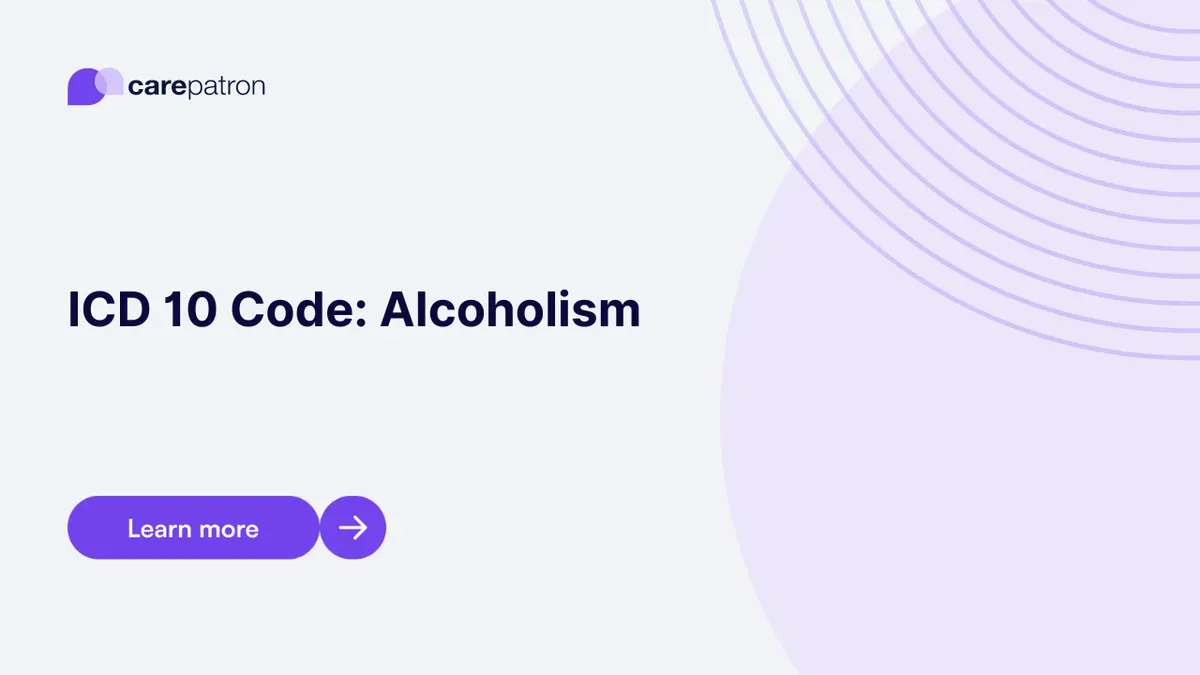
Alcoholism ICD-10-CM Codes
Read this short guide to learn about Alcoholism ICD codes you can use.
Use Code
Commonly asked questions
Here are a few examples:
- F10.221 - Alcohol dependence with intoxication delirium
- F10.232 - Alcohol dependence with withdrawal with perceptual disturbance
- F10.250 - Alcohol dependence with alcohol-induced psychotic disorder with delusions
- F10.251 - Alcohol dependence with alcohol-induced psychotic disorder with hallucinations
Homicide, suicide, assaults, injuries, depression, cancers (liver, colon, mouth), and brain damage are other examples of potential problems caused by alcoholism.
Treatment for alcoholism includes medication such as topiramate and gabapentin, attending behavioral therapies/counseling programs, and being involved with support groups like Alcoholics Anonymous.
EHR and practice management software
Get started for free
*No credit card required
Free
$0/usd
Unlimited clients
Telehealth
1GB of storage
Client portal text
Automated billing and online payments
